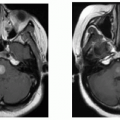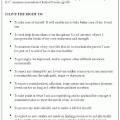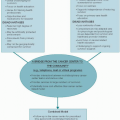|
|
Selected Studies |
Design |
Result |
Hatha yoga |
Focuses on postures (asanas) and breathing exercises (pranayama). |
Moadel et al. (47) |
RCT
128 patients (stages I-III) breast cancer. ECOG performance status of < 3 recruited from urban cancer center to a 12-wk yoga intervention or a 12-wk waitlist control group |
Improved overall QOL (P < 0.008), emotional well-being (P < 0.015), social well-being (P < 0.004), spiritual well-being (P < 0.009), and distressed mood (P < 0.031) |
Iyengar yoga |
Focuses on body alignment, precision, and sequencing of poses; uses props such as blankets and blocks. |
Blank et al. (48) |
RCT
Pilot study of 18 women diagnosed with stage I-III breast cancer and receiving antiestrogen or aromatase inhibitor hormonal therapy. Yoga classes were conducted two times per week for 8 wk |
More than 60% experienced less anxiety and improved mood |
|
|
Duncan et al. (49) |
Single-arm pilot trial
24 postmenopausal women with stage I-III breast cancer who reported aromatase inhibitor-associated arthralgia were enrolled in a single-arm pilot trial. A yoga program was provided twice a week for 8 wk |
Improvement in patient-reported QOL, spiritual well-being, and mood |
|
|
Speed-Andrews et al. (50) |
Single-arm pilot trial
24 breast cancer survivors participated in 12-wk classes in Iyengar yoga and completed a questionnaire measuring generic and disease-specific QOL and psychosocial function before and after the intervention |
Improvement in mental health (mean change, +4.2; P = 0.045), vitality (mean change, +4.9; P = 0.033), role-emotional (mean change,+6.4; P = 0.010), and bodily pain (mean change, +4.4; P = 0.024). |
Restorative Yoga |
“Gentle type” of yoga. Traditional poses performed with props (e.g., an exercise ball) to support the body |
Danhauer et al. (51) |
Single-arm pilot trial
51 women with ovarian (n = 37) or breast cancer (n = 14). The majority (61%) were actively undergoing cancer treatment. All study participants participated in 10 weekly classes |
Significant improvements in depression, negative affect, state anxiety, mental health, and quality of life |
|
|
Danhauer et al. (52) |
RCT
44 women with breast cancer enrolled, 34% were actively undergoing cancer treatment. Study participants were randomized to the intervention (10 weekly 75-min classes) or a waitlist control group |
Improved mental health, depression, fatigue, positive affect, and spirituality |
|
|
Cohen et al. (53) |
Single-arm pilot trial
A pilot trial in 14 postmenopausal women experiencing ≥4 moderate to severe hot flushes per day or ≥30 moderate to severe hot flashes per week. Eight restorative yoga poses taught in a 3-h introductory session and 8 weekly 90-min sessions |
Mean number of hot flushes per week decreased by 30.8% (95% CI 15.6-45.9%) and mean hot-flash score decreased 34.2% (95% CI 16.0-52.5%) from baseline to week 8 |
Yoga of awareness program |
8-wk protocol involving gentle yoga postures, breathing exercises, meditation, didactic, and group exchanges |
Carson et al. (54) |
RCT
37 breast cancer disease-free women experiencing hot flashes were randomized to the 8-wk yoga of awareness program (gentle yoga poses, meditation, and breathing exercises) or to waitlist control |
Improvements in hot-flash frequency, severity, and total scores and in levels of joint pain, fatigue, sleep disturbance, symptomrelated bother, and vigor |
UR yoga for cancer survivors (YOCAS) |
Mindfulness exercises that covered breathing, meditation, visualization, and 18 poses |
Mustain et al. (55) |
RCT; nationwide, multisite, phase II/III study 410 early-stage cancer survivors randomized to usual care or 75-min yoga class twice a week for 4 wk |
Treatment group reported 22% improvement in sleep quality compared with a 12% improvement in control group. Treatment group reduced the use of sleep medication by 12% compared with 5% increase in sleep medication in the control. Treatment group with 42% reduction in fatigue compared with the 12% in control group |
RCT, randomized clinical trial; QOL, quality of life; ECOG, Eastern Cooperative Oncology Group. |








